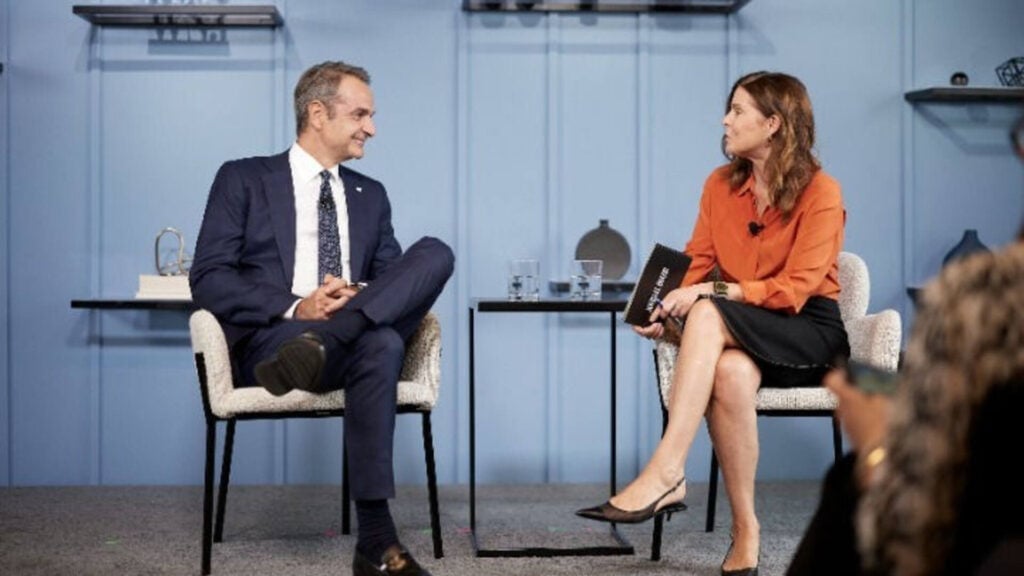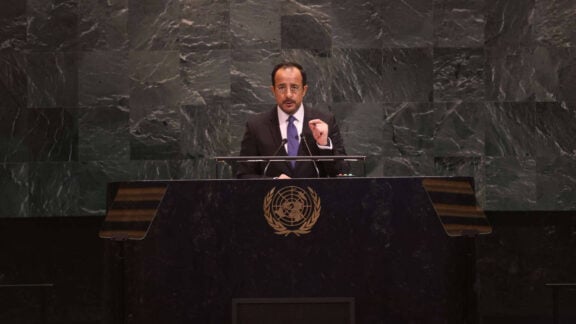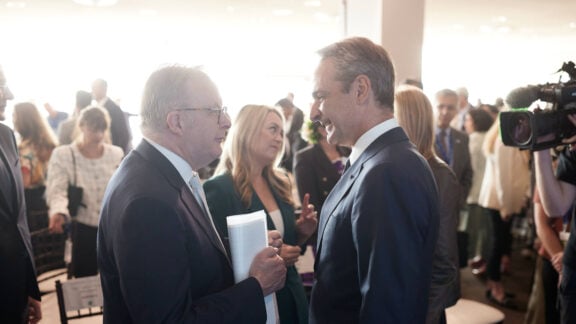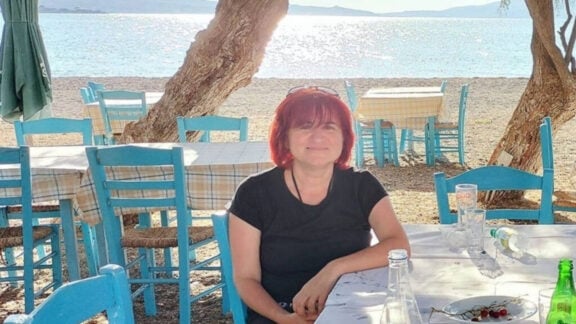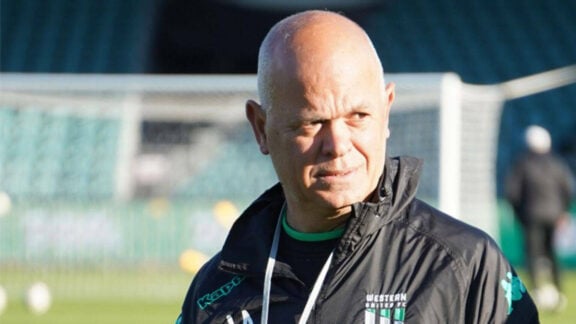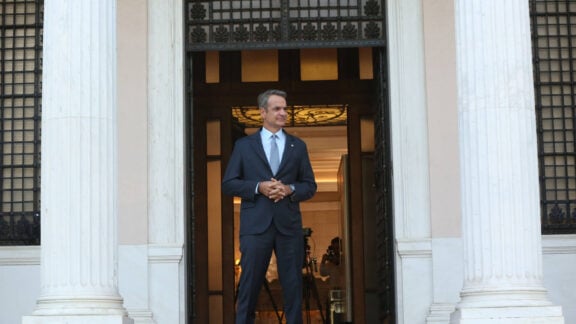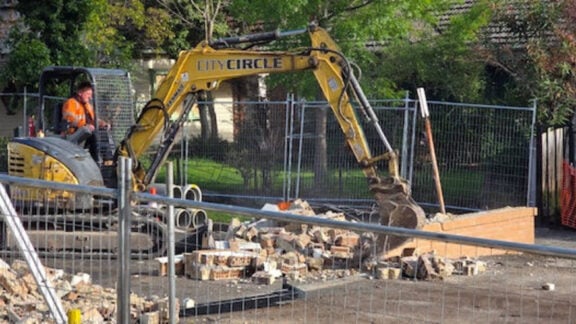Greek Prime Minister Kyriakos Mitsotakis told Wall Street Journal editor-in-chief Emma Tucker on the sidelines of UN High-Level Week that Athens will proceed with hydrocarbon exploration south of Crete regardless of Ankara’s objections.
“We honestly have nothing to discuss with Turkey” about Chevron’s plans, he said.
“We are exercising our sovereign rights south of Crete, If what we’re doing causes some discomfort in Turkey, so be it. C’est la vie.”
He stressed that engagement with Ankara will continue, but “without illusions”.
“I’ve met President Erdoğan seven times since I became prime minister. Keeping an open line of communication with Turkey does not mean we agree on everything.”
He pointed to practical ties, noting Greece welcomed “more than 100,000 Turks” to Eastern Aegean islands via express visas.
On the economy, Mitsotakis cast Greece as a turnaround story driven by stability and investment.
Greece now borrows “more cheaply than France and Italy,” runs overall fiscal surpluses, and has attracted €30bn+ in FDI in six years.
Unemployment has fallen from 18 per cent to 8 per cent, he said, while the minimum wage has risen from €650 to €880 (AUD$1157.78 to AUD$1567.45).
Pandemic-era EU funds are tapering, but “there won’t be a sudden cut-off” given other European instruments.
He named housing as the government’s toughest domestic challenge. “Housing is probably the biggest issue we face right now.”
Measures include returning one month’s rent in November (about an 8 per cent relief), zero income tax for under-25s earning under €20,000 (AUD$35619.20), and cutting the 25–30 bracket from 22 per cent to 9 per cent, alongside incentives to renovate idle apartments and curb short-term rentals that “crowd out” long-term supply.
Tech is a strategic bet. Greece aims to lift the sector from ~3 per cent to 10 per cent of GDP over a decade, leveraging talent, mid-to-giga data centres and AI research. But the information environment is fraught. “We will be flooded with deep-fakes,” he warned, making verified, watermarked content essential.
Abroad, he rejected Donald Trump’s bleak line on Europe.
“Greece is certainly not going to hell. We may not be going to heaven, but we’re doing much better than many European countries.”
Still, the Draghi competitiveness report was “a punch in the stomach,” he said, urging a European defence fund via common borrowing, quicker red-tape cuts, and real capital-markets union.
Energy policy underpins both foreign and domestic goals. Greece is becoming a regional gas hub—17 bcm transit the country, only six for domestic use, while pushing renewables.
“We generate more than 50 per cent of our electricity from renewables,” targeting 70–80 per cent plus storage (batteries, pumped hydro), with natural gas as remaining baseload and heavy investment in interconnections.
On great-power balance, he called the Piraeus port deal a crisis-era legacy and said Athens aligns with the U.S. and EU in strategic sectors. He highlighted India’s rising role and the IMEC corridor, with direct Athens–Delhi/Mumbai flights opening “a huge opportunity” for trade and tourism.
